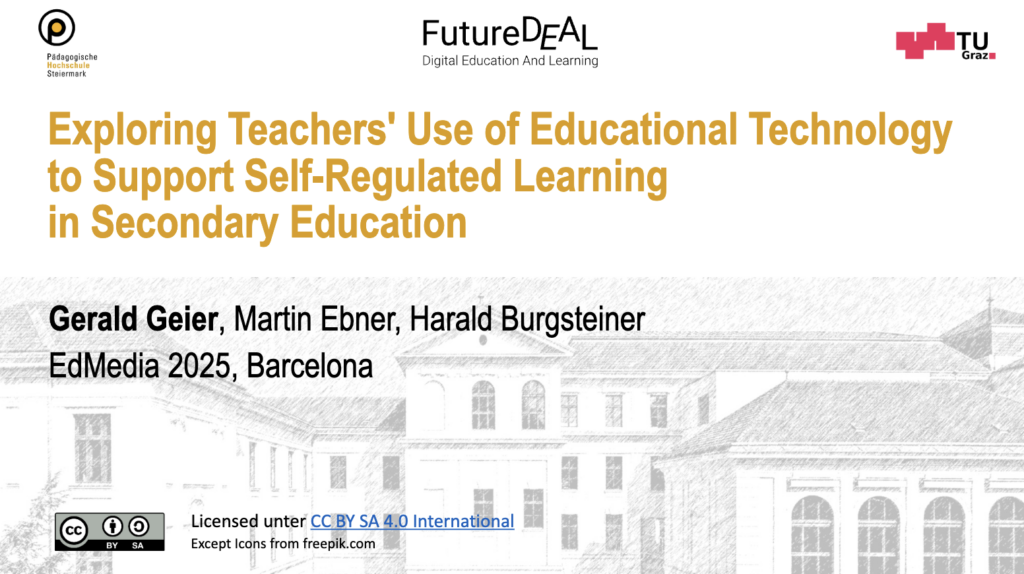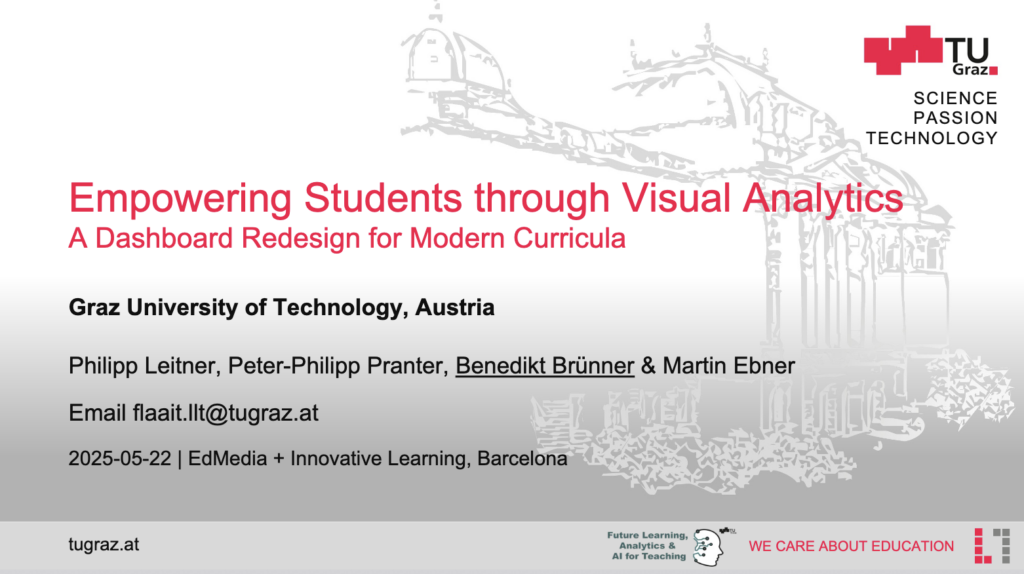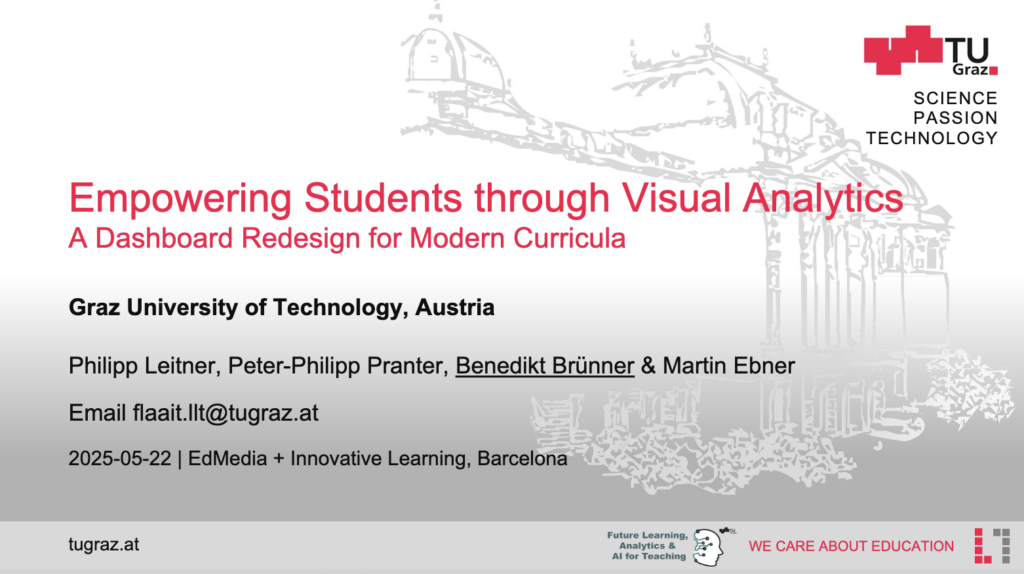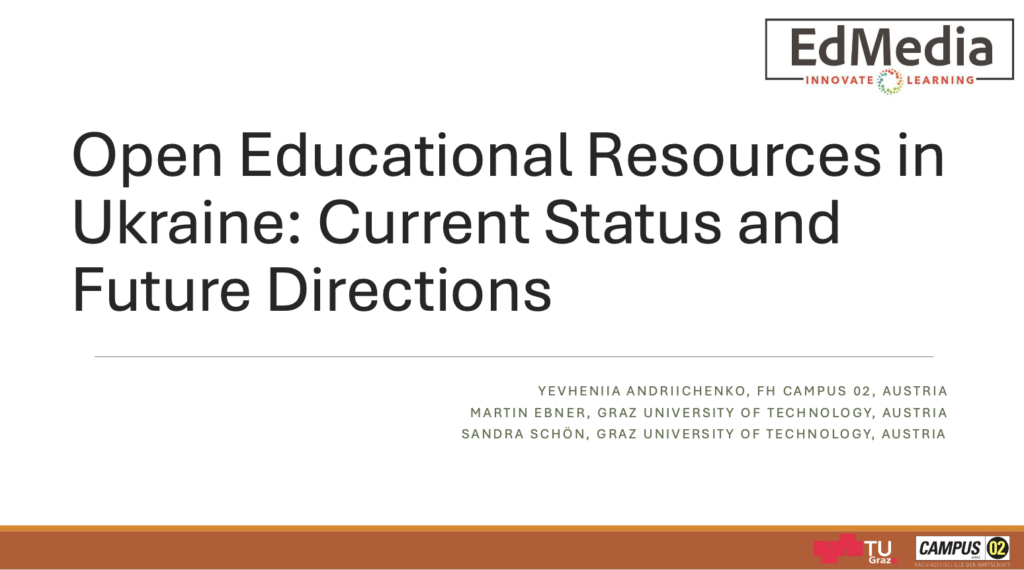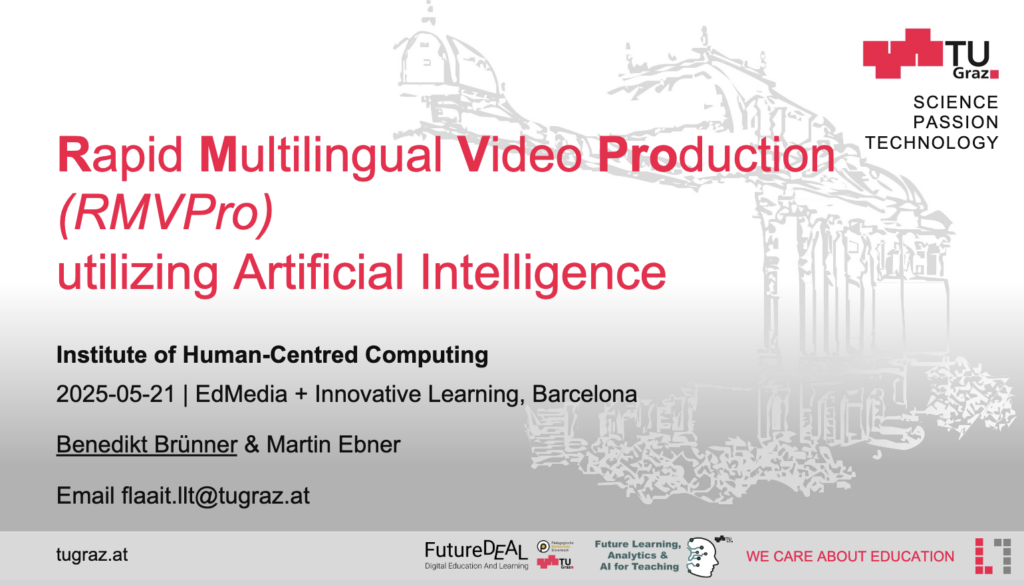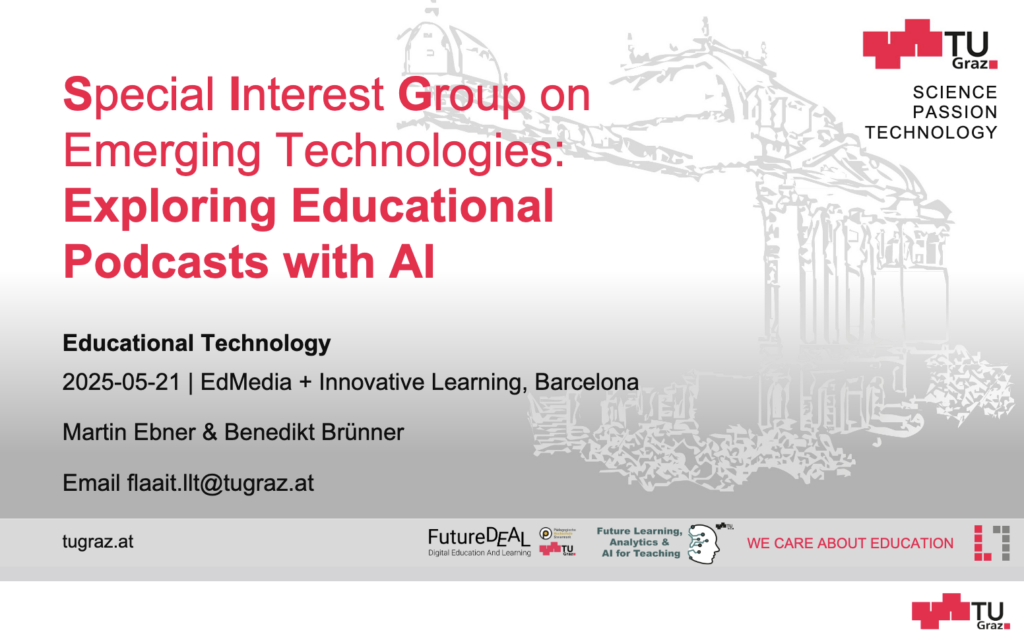At this year’s EDMedia conference, we published a publication titled „Rapid Multilingual Video Production utilizing Artificial Intelligence„.
Abstract:
This study presents the Rapid Multilingual Video Production (RMVPro) framework, an optimized process for creating high-quality multilingual educational videos using artificial intelligence (AI). The framework involves three stages: planning, translation, and production, with each stage involving iterative feedback loops with experts and native speakers to ensure linguistic and cultural accuracy of the translations. The framework for the Multilingual Video Sprint was tested during an international conference and the produced multilingual videos showing an AI human avatar were evaluated in a MOOC with feedback from 128 students. Results showed that AI could be utilized to accelerate video production while maintaining the clarity and comprehensibility of educational content. However, feedback indicated mixed perceptions of AI-generated human avatars, with some students preferring human facilitators for reasons of authenticity. The use of AI avatars in multilingual educational videos must be implemented carefully, but the RMVPro framework ensures high quality while utilizing the potential of AI to rapidly produce multilingual educational videos.
[draft @ researchgate]
[full version @ conference website]
Reference: Brünner, B. & Ebner, M. (2025). Rapid Multilingual Video Production utilizing Artificial Intelligence. In T. Bastiaens (Ed.), Proceedings of EdMedia + Innovate Learning (pp. 1223-1230). Barcelona, Spain: Association for the Advancement of Computing in Education (AACE). Retrieved May 28, 2025 from https://www.learntechlib.org/primary/p/226280/.

